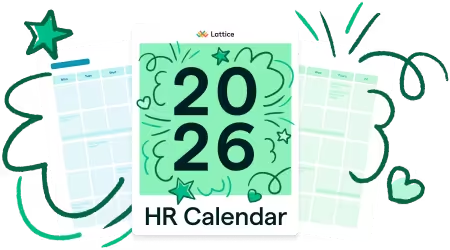Finding Your Zone of Genius at Front

December 14, 2021
Front CEO and co-founder Mathilde Collin explains how practicing extreme transparency has helped her build trust at a company level — and why self-awareness is the most important quality she looks for in leaders. She also shares a two-minute productivity exercise called the “Zone of Genius,” which helps you focus on doing things you truly enjoy.

Your people are your business
Ensure both are successful with Lattice.
⭐️
on G2.com
⭐️
on Capterra




